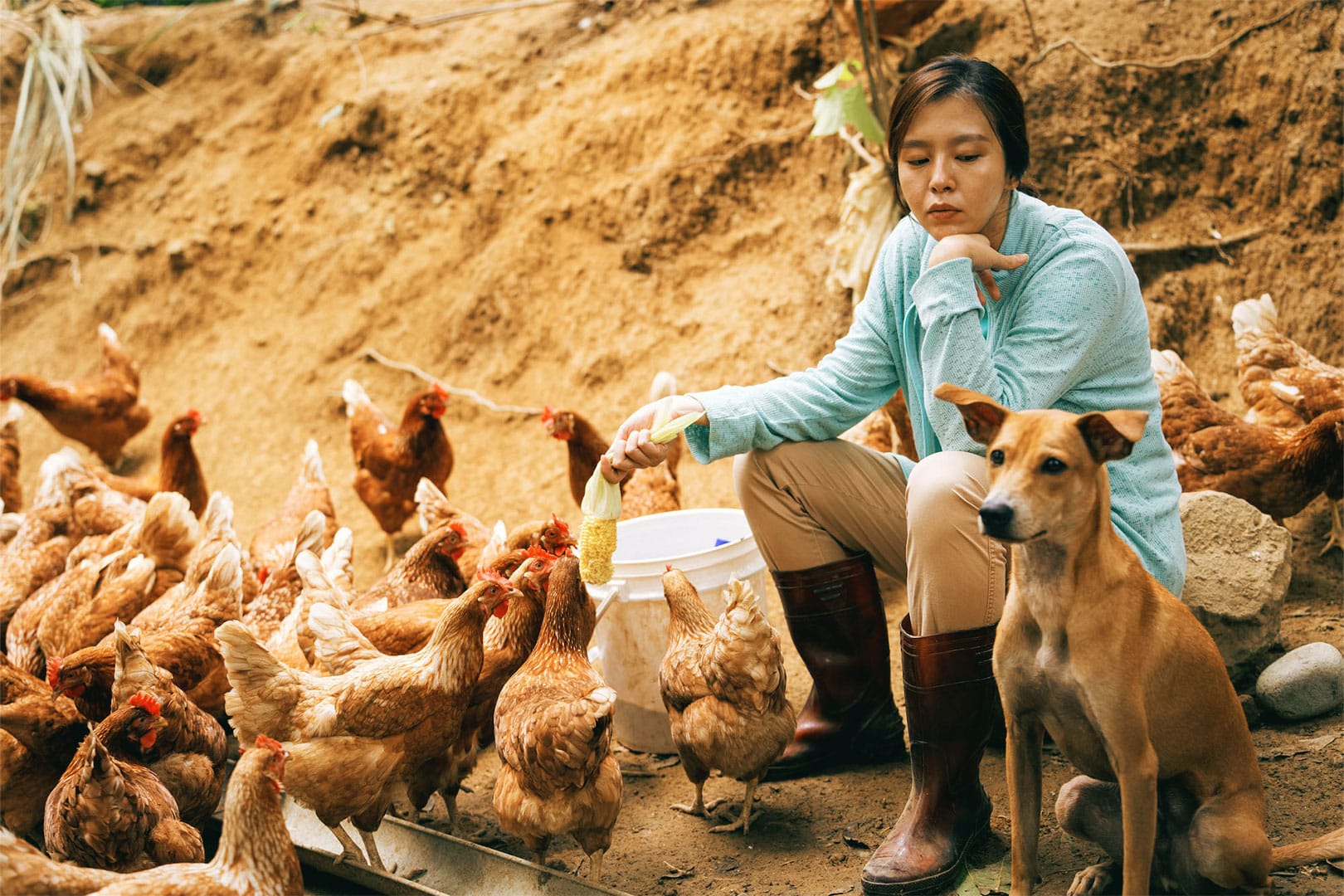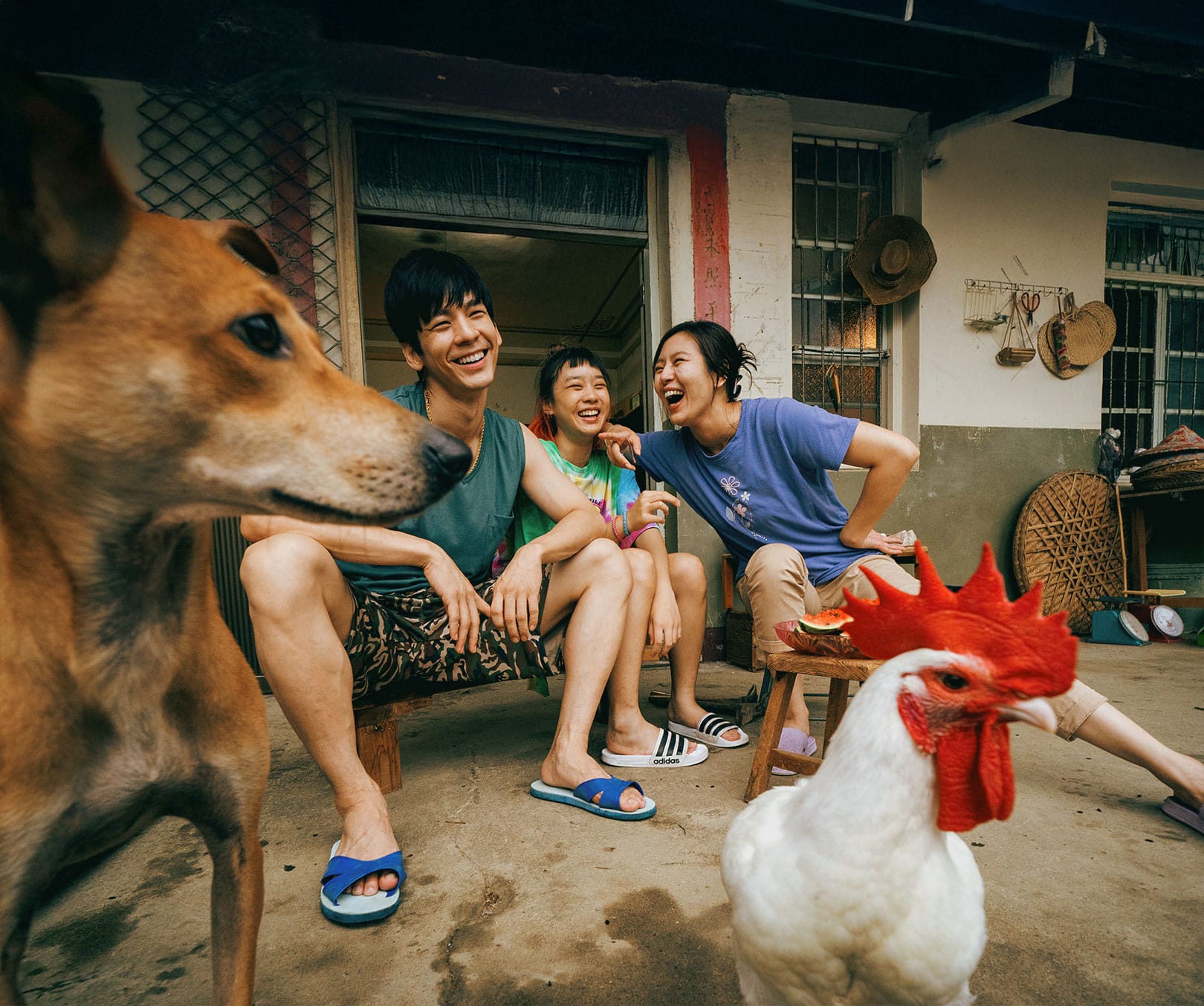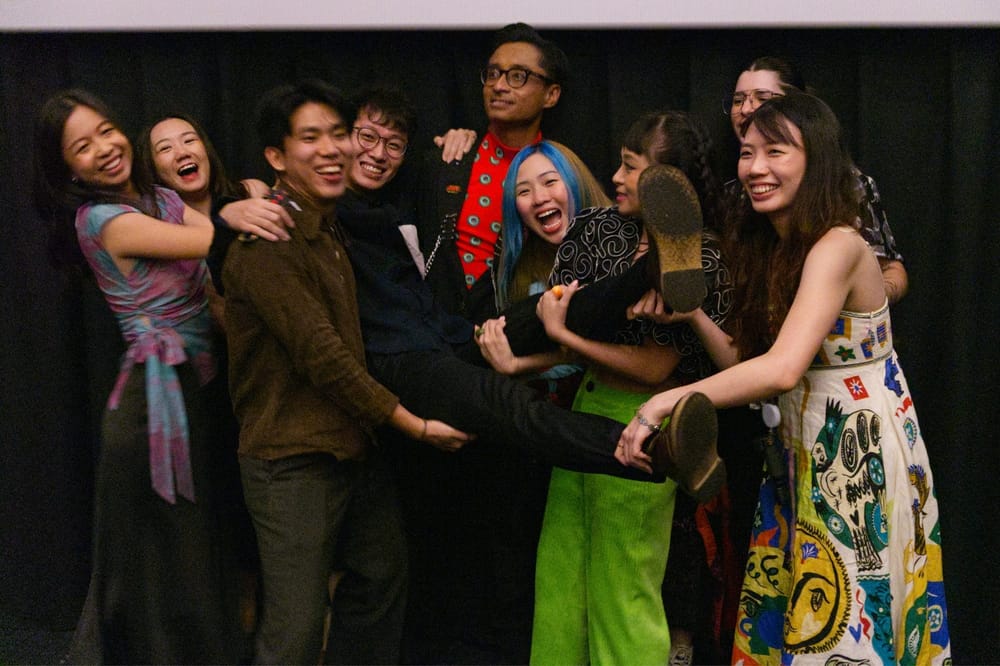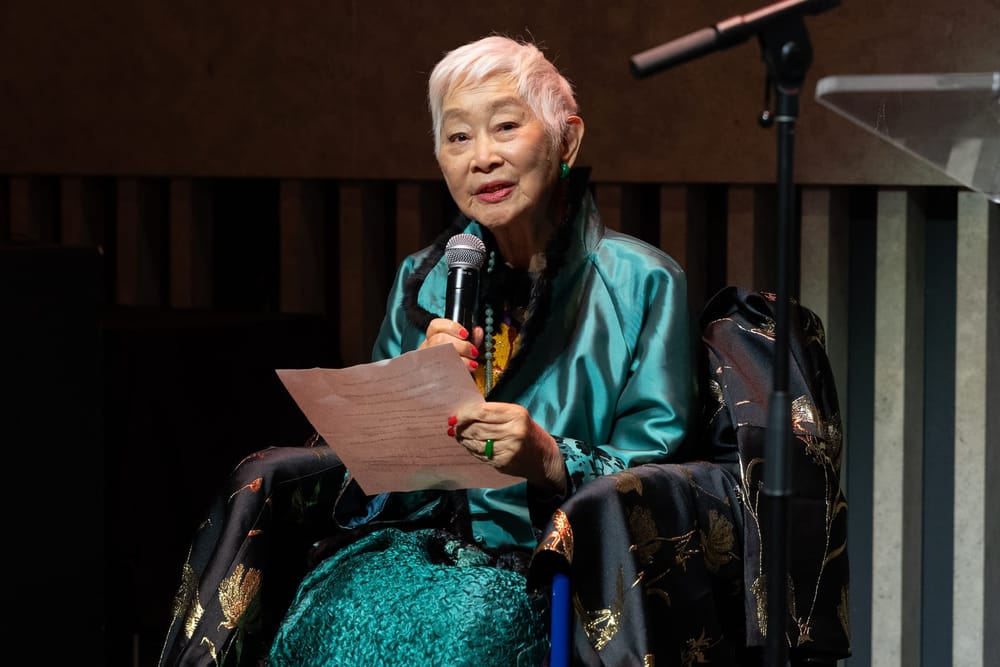By Ash Wu
From “90 Day Fiancé” to Spike Jonze’s “Her,” an obsession with the errant hopes and pitfalls of online romance has permeated pop culture. This fascination isn’t exactly new; “To Catch a Predator” has been nabbing pedophiles who catfish minors for sex since 2004. And in 2022, the documentary “The Tinder Swindler” covered a growing trend of scammers tricking lonely people into opening their hearts and their checkbooks, before draining both.
“Salli,” directed by Lien Chien-Hung and starring Esther Liu, takes the theme of mistaken identity someplace else: to a rural village in Taiwan where a 38-year-old chicken farmer named Hui-Jun discovers the link between online love and IRL disappointment for the first time. Her rebellious niece, Xin-Ru, downloads a dating app called “Pickme” onto her phone and christens her with the Western screen name Salli, after a “famous chicken.”
It’s not long before Hui-Jun is seduced by the light-refracting abs on the profile of Martin, a Parisian gallery owner. The fact that he’s a foreigner is no coincidence. Hui-Jun is trapped in the hidebound conventions of her village in Taichung. A planner pressures her to avoid the wedding of her younger brother, Wei-Hong, because her status as an unmarried woman is considered bad luck. Her desire to escape these frameworks pushes her further into this affair.
As her affections grow, she resigns herself to the fantasy of hiding behind a screen. She tells Martin that she is adept at painting to satisfy his artistic impulses. Her profile displays that she is a decade younger than she actually is. This reverie even extends to the coop’s sole rooster, whom she names Martin and imagines speaking in a sexy French accent. She denies all her family’s allegations that all Martin truly desires from her is access to her bank account.
When Martin asks her to contribute to a down payment on a place in Paris where they can live together, Hui-Jun is almost too far gone. Still, she buys a plane ticket, if only to confirm what she knows is true: Martin doesn’t exist.
“The reason why I want to make ‘Salli’ is because of very common news in Taiwan,” the director Variety in 2023. “Many men and women are deceived by love on the internet. As bystanders, we always laugh at why these people are so stupid. How can they believe in love on the internet? But I reflected, is there something wrong with these people who believe in love? They just want to be loved. So I started Salli’s story.”
Liu deftly employs micro-expressions to develop her character beyond a mere cautionary tale. When her brother expresses concern, her countenance toggles from incredulity to sorrow to prideful defiance. “Your love is true love,” she says to him, “And my love is abnormal?”
Her delivery here strikes at the marrow of the story. Love is pumped chock-full of abnormality. It requires a degree of irrationality and surrender that supersedes the instinct to self preserve. By offering herself up to it, she reveals courage.

Liu displays some clever physicality in scenes where she is defending herself from naysayers. She shrinks into her teenage self, scraping the chair against the floor in a hurry as she rushes upstairs to her bedroom. Her shoulders shake with indignation. She also incorporates comic elements, chucking bundles of pickled cabbage at a friend who she thinks is making fun of her.
After she flies to Paris, the story transforms into a belated coming-of-age. At a party thrown by her AirBnB host, she gets drunk, smokes a joint and kisses a female partygoer as the dance music dulls into an anechoic numbness around her. The kiss clears out space to explore how the “leftover woman” trope so prevalent in Asia could interact with latent queer desire. But this moment of queerness is never explicated upon. Instead, it becomes one more item in a laundry list of missed opportunities.
Her second adolescence abroad teems with these thwarted chances at developing complexity. The third act should thicken with color as she recognizes the pleasure of being alone and realizes her current lack of need for commitment. However, each successive beat comes quicker than the one before, and her time in Europe morphs into a syncopated blur of events, from drinking champagne to casual sex to her eventual return to Taiwan, just in time for her brother’s wedding.
This change of pace wouldn’t be as jarring were it not for the charming, marmalade-slow pace of the first act, which unfolds as Hui-Jun feeds chickens and checks her phone against Taiwan’s lush, verdant mountains. “Salli” thrives in this quietude, which allows the protagonist’s desire to simmer under a microscope.
Additionally, the film refuses to shirk from recycling cinematic cliches. When Hui-Jun feels inner turmoil, a typhoon arrives and rips away at the foundations of the chicken coop. When she experiences liberation in Paris, a flock of pigeons fly across the Eiffel Tower in slow motion.
This feeling of inertia is encapsulated in how she interacts with an art piece Martin sends her, which she later witnesses in person: a Philipp Kremer painting where ochre-colored figures perform fellatio on one another and collapse into a heap of limbs. In her imagination and in reality, her hands shift across the piece without getting close enough to touch it. She remains trapped in an approximation of desire.
Country: Taiwan
Director: Lien Chien-Hung
Cast: Esther Liu, Austin Lin
Languages: Mandarin and French with English subtitles
Running time: 104 minutes








